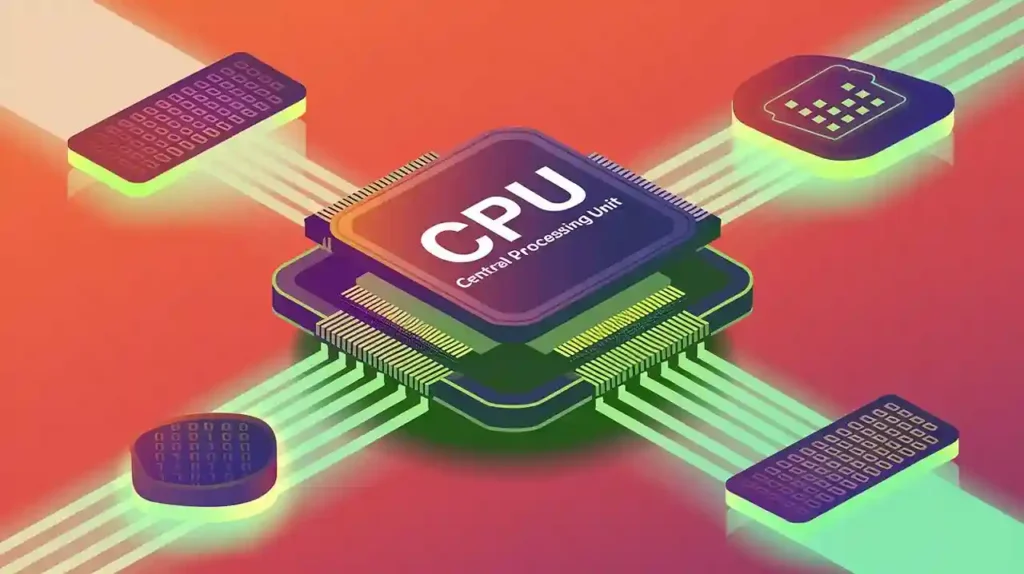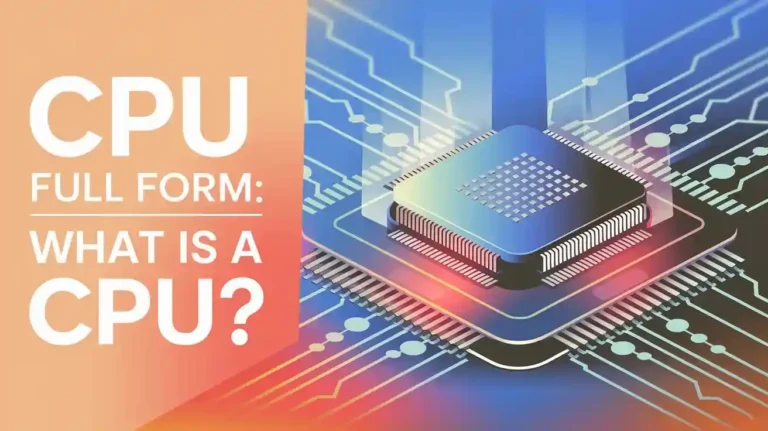📢Introduction
You’ve probably heard the term “CPU” before, but do you know what it stands for and why it’s important? This post explains the full form of CPU, what it does, and why it matters for your computer.
📜Table of Contents
CPU Full Form🖥️
🟢CPU full form is Central Processing Unit.
What Does CPU Stand For?🤔💭
CPU stands for Central Processing Unit. It’s often called the “brain” of your computer because it handles all the instructions and processes that make your computer run.
➤Breaking Down Central Processing Unit
- Central: It’s the main part where processing happens.
- Processing: It means the CPU does all the calculations and operations.
- Unit: Refers to the CPU as a single, essential component.
What Does a CPU Do?🤔💭
- Fetches Instructions: Gets commands from your computer’s memory.
- Decodes Instructions: Understands what the commands mean.
- Executes Instructions: Performs the tasks as instructed.
- Stores Results: Saves the outcome or sends it to other parts of your computer.
Why Is the CPU Important?🤔💭
- Performance: A faster CPU means your computer runs better.
- Multitasking: A good CPU helps you run multiple programs smoothly.
- Software: It’s essential for running all your applications and games.
Types of CPUs📌
- Single-Core: Older CPUs with just one processing unit.
- Multi-Core: Newer CPUs with several cores, which means better performance and multitasking.

CPU Architectures📐
- x86 Architecture: Commonly used in most desktop and laptop CPUs.
- ARM Architecture: Often found in mobile devices and tablets due to its energy efficiency.
Clock Speed and Performance⏳
- Clock Speed: Measured in GHz, this determines how many cycles a CPU can perform per second. Higher speeds generally mean better performance.
- Thermal Management: CPUs require cooling systems to prevent overheating, which can affect performance and longevity.
CPU Caches💾
- L1, L2, and L3 Caches: These are small, fast memory storage areas within the CPU that store frequently accessed data to speed up processing.
CPU vs. GPU🆚
- GPU (Graphics Processing Unit): Unlike the CPU, which handles general tasks, the GPU is specialized for rendering graphics and performing parallel processing tasks.
Future Trends in CPU Technology🚀
- Increasing Core Counts: Future CPUs are expected to have even more cores to handle more tasks simultaneously.
- Energy Efficiency: Ongoing developments aim to make CPUs more power-efficient while increasing performance.
Common Misunderstandings💡
- “CPU is the same as the computer’s brain”: The CPU is a crucial part, but the whole computer works together.
- “More cores always mean better performance”: Performance also depends on other factors like CPU speed.
🎯Conclusion
The CPU, or Central Processing Unit, is a key part of your computer that helps it work. Knowing what it does and why it’s important can help you understand your computer better.
🔍FAQs
What does CPU stand for?
CPU stands for Central Processing Unit.
Why is the CPU called the computer’s brain?
Because it processes all the instructions and makes your computer work.
How does a multi-core CPU help?
It allows your computer to handle more tasks at once.
What are common CPU problems?
Issues can include overheating or problems with cooling.
You can follow our website Tutotrial Temple for learn more about related topic.
